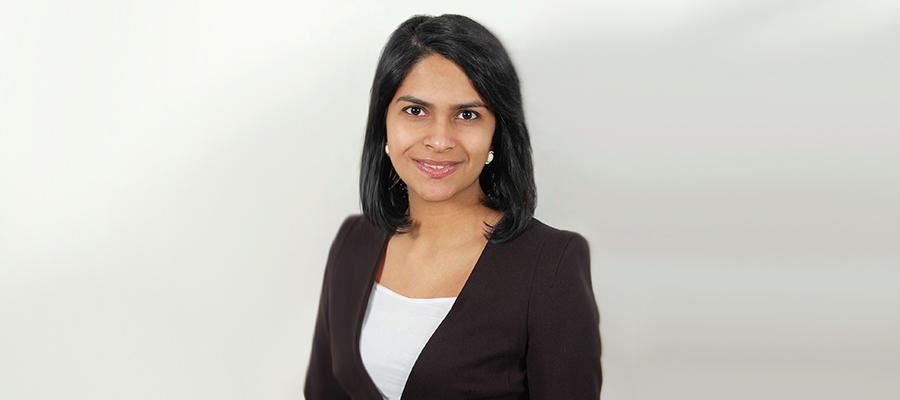- About
- Admissions
- Study at AUS
- Prospective Students
- Bachelor's Degrees
- Master's Degrees
- Doctoral Degrees
- Admission Publications
- International Students
- Contact Admissions
- Grants and Scholarships
- Sponsorship Liaison Services
- Testing Center
- New Undergraduate Student Guide
- Undergraduate Orientation
- New Graduate Student Guide
- Graduate Orientation
- File Completion
- Payment Guide
- Students with Disabilities
- Executive and Continuing Education
- Academics
- Life at AUS
- Research
- Publications
- Contact Us
- Apply Now
- .

AUS alumna to women students and alumni: “You have the power to create change.”
Her love for research, the desire to contribute to a more equitable future and the determination to overcome gender stereotypes were the main drivers that led to the success achieved by American University of Sharjah (AUS) alumna Vidya Diwakar.
A Research Fellow at the Chronic Poverty Advisory Network (CPAN) hosted at the Overseas Development Institute in London, Diwakar graduated from AUS in 2012 with a double major in international studies and economics and a minor in women’s studies.
“I faced resistance in my journey – sometimes from people close to me – largely on account of adverse gender and social norms. It might have been easier at the time to give up, especially as we may be socially conditioned to a certain degree to uphold tradition and not go against the grain. Ultimately, you need to find a balance that allows you to realize your true potential,” said Diwakar.
After graduating from AUS, Diwakar received an MPhil in economics from the University of Cambridge in the UK. She then joined the Delma Institute in the UAE where she focused on researching issues of socio-economic development in the Gulf and the wider MENA region. She subsequently worked as a consultant with the United Nations Children Fund (UNICEF) on a project focused on child poverty and conflict. Following that she joined CPAN where she has been a mixed methods researcher for the past six years, investigating drivers of poverty dynamics, trying to understand what keeps some households chronically poor, what contributes to poverty descents or enables sustained escapes from poverty.
Speaking about her work, Diwakar said: “I examine drivers of poverty dynamics and develop policy and programming recommendations for countries in South/Southeast Asia and sub-Saharan Africa. I analyze large-scale household panel survey data to understand gender-disaggregated drivers of different poverty trajectories primarily in low-income countries and conflict-affected contexts. I then work with colleagues to undertake or analyze qualitative data collected in the same countries to uncover the processes and pathways through which households experience changes in wellbeing over time.”
Reflecting on the global progress on gender equality in life and work, Diwakar said that while there has been progress on gender equality, there is yet a lot to be done.
“For example, an intersectional lens remains largely absent in life and work. Even where women have made some strides in greater labor force participation and decision-making in public and private spheres, women facing intersecting inequalities (such as economic disadvantage compounded by inequalities based on race or location) often continue to be marginalized. Measuring progress experienced by the lucky few or even based on averages obscures the structural constraints that prevent women furthest behind from fully participating in society,” she said.
Her journey at AUS provided her with a solid foundation that prepared her for her current work.
“Many of my professors at AUS even after I graduated were instrumental in leading me to where I am today, whether through their kind recommendation letters for work and further studies, conversations about future directions, collaboration in research, or more generally the friendships developed along the way,” she said.
Diwakar noted that she continues to go back to some of her econometrics notes even today for a refresher. Her women’s studies courses helped her refine the tools with which to advocate for equal opportunity, whether based on gender or other markers.
“The well-rounded nature of the education system coupled with wide-ranging university extracurricular activities really help students to take charge, problem-solve, and effectively communicate and collaborate, which are all critical skills in the working environment,” said Diwakar.
She also sent out a message to women students and graduates emphasizing the power they have to create change. “Some people around you may mistakenly equate age or race with experience, or gender with seniority, but do not let that deter you from continuing to exert your agency, fight for what you believe in, and achieve what you desire,” Diwakar added.

